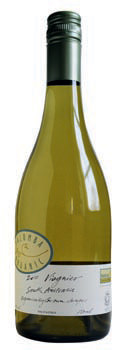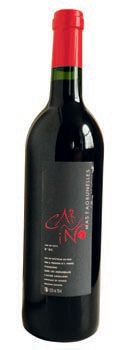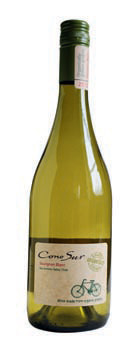Get Premium access to all the latest content online
Subscribe and view full print editions online... Subscribe
Just because a wine isn't labelled organic, it doesn't mean it hasn't been mostly made that way, says decanter.com's Adam Lechmere
What’s the difference between a chicken and a bottle of wine? It’s not a riddle: the answer lies in how long you spend interrogating bird or bottle before you buy. I would bet that when you pick up a chicken in the supermarket you study its CV: is it organic, free range, RSPCA Freedom Food certified?
When it comes to wine your purchasing decision will depend on other criteria: price, alcohol level, whether you know the region or grape – but I guarantee ‘organic’ comes way down on that list. If at all.
Even wine merchants don’t really know how much organic wine they carry. Waitrose, for example, says about eight per cent of its wines are certifi ed organic, with double that number organic but uncertified. Sainsbury’s has one per cent, Tesco hardly any at all (‘it’s not a big focus at the moment’).
Organic viticulture, at its simplest, is a matter of growing grapes without the use of chemical fertiliser, pesticides or fungicides, and no genetically modified organisms. One of the problems is there is a plethora of internationally recognised certification bodies for organic wines, each one of which applies different criteria. In the US, for example, a wine containing sulphites can’t be certified organic, but over here it can. Now sulphites are perfectly natural workhorse chemicals with many uses in the winery. Many organic winemakers agree they’re necessary to conserve wines.
The truth is that the world’s best winemakers would not dream of being anything other than organic in their vineyards, but many will use chemicals if it’s a question of saving their crops. I know of famous Bordeaux properties that sprayed for mildew during the miserable summer of 2007, and thanked heaven they hadn’t paid their dues to one of the plethora of organic certification bodies.
Many properties baulk at the daunting paperwork – not to say cost – involved in certifi cation. The process can take more than three years, and include numerous inspections, and a costly and labour-intensive overhaul of every system. And then the world’s fourth-largest retailer says organic wine just isn’t on their radar.
No wonder so many properties adhering to organic or biodynamic regimes don’t bother with the bureaucracy. Château Pontet-Canet, a renowned Bordeaux cru classé, is biodynamic but doesn’t say on the label, and there are many others.
It’s a shame it’s all so opaque. Wine retailers, especially supermarkets, know how confused shoppers are by the ‘wall of wine’ and don’t want to add even more layers of complexity – it’s in their interests to keep up the myth that all wine is organic anyway.
Of course, that’s not true. But at the moment the public’s not interested whether a wine is certified organic or not, and wine producers know it. Until that changes, just remember if you always go for minimum-priced, discounted wines, you’re more likely to get something that’s been grown with a good deal of chemical help.
Viognier is a strange and exotic grape that can produce dense, spicy wines. This one has tropical fruit and mouthwatering acids. It needs strong-flavoured seafood.
Available at:Waitrose

When did you last have a German wine? This is a very dry riesling with moderate alcohol, lots of peppy acids and a lovely fragrant, almost floral nose. Perfect as an aperitif.
Available at:Tanners

Lovely fruity nose, with woody raspberry on the palate. The palate is bright and juicy, very attractive. Fresh, goes beautifully with duck pâté – try to pair a dish to where the wine is made.
Available at:Artisan & Vine

Merlot’s going out of style over here, but it’s worth having a look at: lots of bright, spicy plum and black fruit, and lovely full, rich and juicy tannins. Perfect with curry, or even a strong meaty Thai dish.
Available at:Waitrose

A bright, fresh wine without the intense gooseberry or asparagus that characterise some New World sauvignons. Some appley fruit, racy acids and good length. A seafood wine.
Available at:Oddbins

Subscribe and view full print editions online... Subscribe